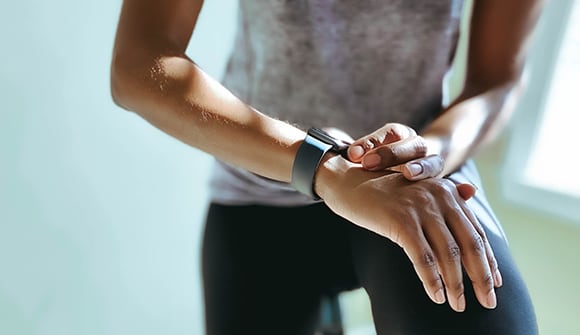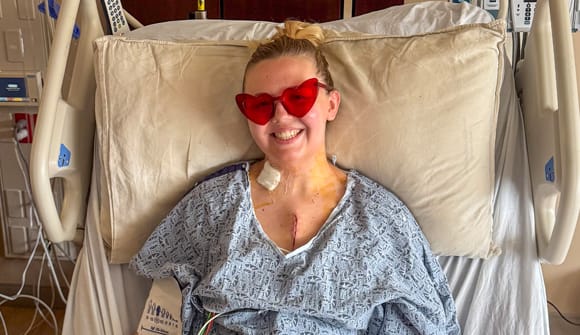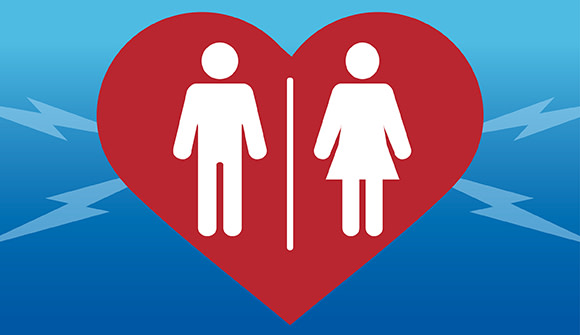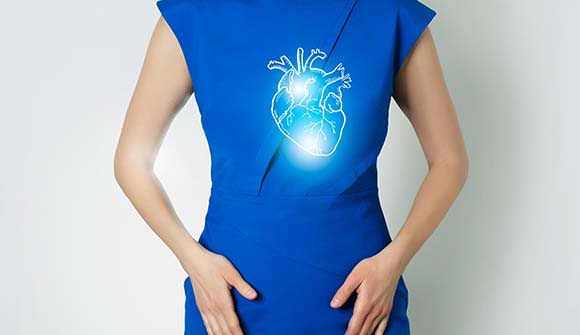Prakash Chandran: Welcome to Baptist Health Radio. As the most preferred healthcare provider in Northeast Florida, we are here to help you stay informed with the latest news, views and resources for your health and well-being.
Smartwatches, pedometers, and other fitness wearables are everywhere these days. They can range in sophistication from simply tracking your steps and movement to being able to track your heart rate and, most recently, your heart's rhythm or electrical signature. Today, we'll discuss the possibilities and pitfalls of wearable technology for heart health with Dr. Matthew McKillop, cardiac electrophysiologist and Medical Director of the EP Program at Baptist Health.
This is Baptist Health Radio from Baptist Health of Northeast Florida. My name is Prakash Chandran. So first of all, Dr. McKillop, it's great to have you here today. I'd love to start by you telling us a little bit about this new technology and specifically how it's able to track my heart rhythm. And I know about heart rate, this is the first time I'm hearing about heart rhythm. So maybe you can also distinguish between the two.
Dr. Matthew McKillop: Sure. I'd be happy to. Thank you very much for having me. So most people are familiar with fitness watches tracking their heart rate, and that's been a situation that's been around for quite some time. But what's recently changed in the last several years is some companies have been able to manufacture devices that will allow us to not only track the heart rate, but also catalog what the heart rhythm is doing. And that can be through specific devices that involve putting your fingers on a little finger plate that communicates to a cellular phone or a smartphone or, more recently, Apple has led the way in developing technology that is incorporated in their wearable devices, specifically their Apple Watches and some of the other competing companies have developed the same or have adopted the same technology.
What that's allowed us to do is not only record the rate, which is the number, what your heart rate is doing, but it also records the actual electrical signature of the heart through one-lead EKG recording. And that recording is stored on your phone and is then available for us to look at after the fact. And what these companies have actually gone even further doing is that they're training their watches and their computer algorithms that are involved with these devices to interpret these tracings. And so what the devices are now able to do for patients and for consumers is not only record the heart rhythm, but also provide a rudimentary interpretation of the heart rhythm using computer technology and artificial intelligence. And it provides consumers one to three diagnoses, whether or not the patient has normal rhythm, whether or not the patient has what's called atrial fibrillation or whether or not it deems it inconclusive. And so this has been a new advent in technology in allowing our patients to, one, record their heart rhythm, but also get an initial interpretation based on computer algorithm.
Prakash Chandran: Yeah. That sounds absolutely fascinating. And I also have an Apple Watch and I am constantly impressed by the number of things it can do, especially when it comes to monitoring my heart health. So just to unpack a little bit more, the differences between heart rhythm and heart rate, I know heart rate is for example, like 84 beats a minute, right? And you mentioned that the heart rhythm was more about the electrical signature. So in contrast with the beats per minute, how can we think about how the electrical signature is measured?
Dr. Matthew McKillop: Yeah. So again, the fundamental difference is the heart rate is an actual number. So it's an assigned number based on how many times your heart is beating in a minute period. So 80 beats per minute is how often your heart beats in that 60-second interval. The difference between that and what's called an EKG or electrocardiogram is the heart actually has an electrical signature that shows electrically how many times your heart is beating, but it also gives us a pattern. So there's a pattern to your electrical signature that we can then interpret as a physician, specifically a cardiologist and electrophysiologist. We can look at that pattern and decide if there are any manifest problems electrically with the heart. And so you can have a normal heart rate, meaning an 80-beat per minute heart rate, but actually be in an abnormal heart rhythm. And that pattern that the EKG records can help us decide that difference.
Prakash Chandran: So you mentioned AFib or atrial fibrillation, which I've actually heard a lot about. Could you explain a little bit more about what it is and how serious it is?
Dr. Matthew McKillop: Sure. So atrial fibrillation is the most common arrhythmia that adults can experience. It is an irregular heart rhythm that's generated from abnormal conduction in the top part of the heart, which are called the atria. Arrhythmia itself fundamentally is not life-threatening, but what it can do and does do is increase an environment or facilitate an environment in your heart that's conducive for forming clots.
So blood clots can form in your heart as a consequence of going in and out of this, arrythmia and those blood clots can actually be ejected or jettisoned from your heart and obstruct blood flow in certain blood vessels in specifically your brain and, as a consequence of that, that can lead to what's called stroke.
And so the major concern with atrial fibrillation in most patients is the ability of the arrhythmia to increase your risk for forming clots and causing a stroke. And so, the issue now is that we have patients that have these wearable devices that have technology that's going to offer them a potential diagnosis of atrial fibrillation. And so if that diagnosis is made by the watch, how do we then route them into the medical setting to confirm the diagnosis and then act on it?
Because what we would do in that setting, if we confirmed the presence of atrial fibrillation on that watch's recording, then we would recommend potentially the patient start a blood thinner depending on other risk factors for that patient for stroke. And so if they had additional risk factors for stroke, then we would actually recommend the patient start a blood thinner, either low-dose aspirin or a group of medicines called oral anticoagulants. And so that diagnosis does require a provider, a physician provider or healthcare provider to make a determination of whether or not we need to start a blood thinner, because that is the fundamental concern as far as risk related to the arrhythmia.
Prakash Chandran: Okay. Understood. If I get a notification that I have an irregular heart rhythm, what exactly does that mean?
Dr. Matthew McKillop: So what the devices now do is it will typically give you one to three diagnoses, whether or not it thinks it's atrial fibrillation, whether or not it thinks it's normal or whether it's inconclusive. And so the devices themselves are pretty good, but they're not all that accurate. I think they're essentially an initial way of notifying patients that there may be a problem. The issue now is that how do we connect patients that have these devices that are informing the patients that there may be a problem.
The concern that we have in the medical community now is how do we get those patients that have had their watch, let's say, identify something that is a possible concern? How do we get those patients efficiently into the healthcare system to actually validate whether that is an actual concern or not?
And so that's really the main sort of obstacle we're running into, is that the access to these devices is increasing exponentially. So more and more people have Apple Watches, fitness watches, wearable devices that will have this technology embedded in it. And the technology is going to provide them a rudimentary analysis of their heart rhythm and alert the patient that there may be something wrong. The issue now that we're going to have to deal with is how do we get those patients into the healthcare system efficiently. So that way, we can validate the diagnosis and then, more importantly, if it's a concern, how to then act on it. So do we prescribe a medicine? Do we actually do a procedure?
And all of these things in my own practice have come to fruition. So patients that have had these wearable devices have self-identified arrhythmias through the device, brought them to my office. I've confirmed them as a diagnosis of an abnormal heart rhythm and actually that has led to procedures that have addressed that problem or led to starting medicines that have addressed that problem.
And so the issue that we're struggling with from the medical community is that we're having more and more patients that are going to be accessing this technology that will provide them a diagnosis potentially. And then how do we get those patients into the system efficiently to confirm the diagnosis and, more importantly, act on it.
Prakash Chandran: Yeah. So let's expand on that a little bit. Like for example, let's say I receive a notification of an irregular rhythm. What is the best next step that I can do after that?
Dr. Matthew McKillop: That's the essential key problem. And it fundamentally amounts to whether or not you have a healthcare provider in the first place. So if you had an alert on your watch and most people have a primary care provider, your next best option, if you have a primary care provider is to go see that person. And the nice thing is the technology will store that information on your phone for that provider to look at and address and confirm whether or not that's an issue. And very often primary care providers may not be able to address that concern directly, but what they can do is then refer you to a cardiologist or an electrophysiologist like myself, who they can act on that heart rhythm abnormality.
The other option would be is to skip the primary care provider role directly and then go and establish care or find a specific cardiologist or electrophysiologist directly and see that person without having to access a primary care provider. The issue with that is very often, most people kind of prefer going way of their primary care provider, because oftentimes it's easier to see that physician in a more timely way. And so I think in that setting, probably the best avenue would be a primary care provider.
The tricky problem now is that we have so many patients and consumers that have access to technology that very often they actually don't have a primary care provider. And what to do in that setting is a bit challenging. And that could be establishing with a new physician or establishing with a new heart specialist or going to an urgent care clinic. All of those are potential possibilities.
Prakash Chandran: Okay. And one of the last things that I wanted to ask you is your general recommendations around whether people should think about investing in a wearable technology to monitor their heart health. I imagine people with risk factors, this is something they absolutely should do. But in general, is this something that you recommend?
Dr. Matthew McKillop: Yes. The answer is yes, I do. I've found in the last several years in working with this technology, that it's actually been a significant advance in how our patients and physicians can interact. And what I mean by that is that the devices now allow patients to do their own self-monitoring. And so in my office, I see patients with heart arrhythmias. And so for patients to have the ability to do their own monitoring, and then more importantly, record that monitoring to bring to the office for me to review and confirm if there's continued issues has been in a sense of game-changer.
And so what it's also done is it's provided sort of an ownership of their healthcare condition for the patients. And so they have an ability now to kind of take back control of feeling like they can do something to continue assessing their condition whereas before patients would feel something in their heart, not know what it is, be worried about what it is, and then have to see me in the office where we would put on medical-grade monitoring and that consequentially sort of leads to anxiety and stress.
Whereas now my patients then have these wearable devices can monitor themselves. The device can provide at least a rudimentary interpretation telling the patient that it may be normal or it may not be. But they can record that information, then immediately bring it into the office or send it electronically through their electronic medical record. Then we can provide essentially a more instantaneous evaluation, whereas before a lot of that got delayed. And so I've found that, in my patients, a tremendous help in making them feel more comfortable as far as how they're doing going forward with their heart rhythm diagnosis.
Prakash Chandran: Yeah, no question about it. The technology is truly amazing. So just before we close here today, is there anything else that you would like to leave our audience with regards to heart health or this wearable technology?
Dr. Matthew McKillop: Well, what I would say is the technology is great and the technology is expanding. So our access to the technology is going to be even more extensive as the years go by. What I would say is that the technology itself is going to provide at least some recording of the heart arrhythmias in some limited interpretation.
What needs to happen in that setting is that the consumer needs to figure out ways of getting in to see healthcare providers. And what we need to do on the healthcare side is also figure out ways of facilitating those patients with these wearable devices of getting them access to the care that they need, because what we're going to be doing and are doing right now is making a lot of these arrhythmia diagnoses on these watches in consumers that may not have an actual healthcare provider. And so how we connect those patients with their providers is going to be the next major step.
Prakash Chandran: Yeah. Well, I think that if you're listening to this and you don't have one of these wearable pieces of technology, it might be worth taking a look at. But I think even more importantly, it's important to have a relationship with a primary care provider, because even if you get these readings, it's going to be really important to talk to your primary care provider to figure out what the next steps are. Wouldn't you say that's true, Dr. McKillop?
Dr. Matthew McKillop: That's absolutely correct, because again, this is going to provide some data, but you're going to need a physician or healthcare provider to evaluate that information and confirm whether or not there's something that needs to be acted on.
Prakash Chandran: Yep. Well, Dr. McKillop, I really appreciate your time today. This has truly been a fascinating conversation. That's Dr. Matthew McKillop, cardiac electrophysiologist and Medical Director of the EP Program at Baptist Health.
If you are concerned, you have an irregular heartbeat and need a cardiologist or for more information about heart conditions in general, please visit baptistjax.com/heart. That is Baptist, J-A-X dot com slash heart or call (904) 720-0799 to make an appointment. Thank you for listening to this episode of Baptist Health Radio. My name is Prakash and we'll talk next time.




